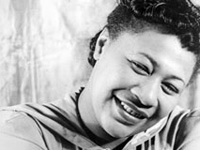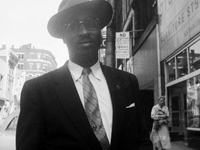Flashing Across the Country: Mr. Zip and the ZIP Code Promotional Campaign

Anytime you write a letter, you use the ZIP code. What is that code, and when did people start using it? More importantly for the postal service, how do you get an entire country's population to memorize and add a seemingly random string of numbers to their addresses?
The answer, in the 1960s, was Mr. Zip, a jaunty cartoon postman, designed to make the new ZIP code cause memorable and approachable.
This website discusses the ways in which Mr. Zip was deployed as an educational and advertising device. The majority of the content consists of an essay divided into smaller, more manageable subpages. However, sprinkled throughout, you'll find Mr. Zip comics; merchandise, such as board games and lunchboxes; promotional materials; PSA videos; a memo; photographs; and postage stamps.
This video describes what each number of the ZIP code represents, which could be a hook if you decide to introduce Mr. ZIP in the classroom. Ultimately, the content is not likely to be of direct use in the classroom but may be of more interest as trivia or to flesh out background knowledge for related lessons.



